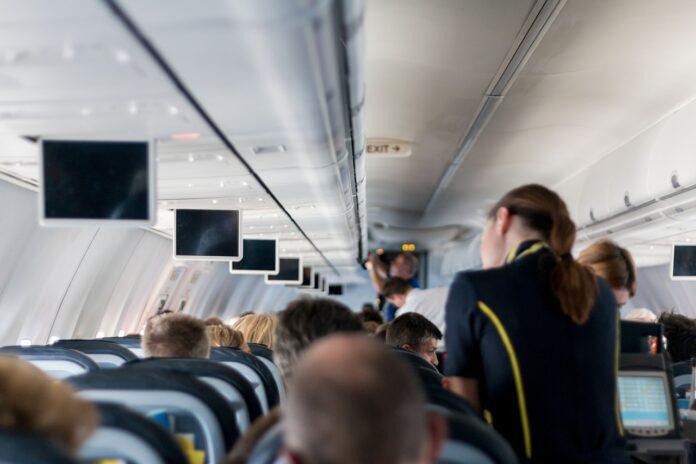The federal mask mandate for public transportation in the US was due to expire on April 18, and had been extended to May 3 by the CDC, but a federal judge in Florida, US District Judge Kathryn Kimball Mizelle, an appointee of former President Trump, ruled that the CDC did not have the authority to issue a federal transportation mask mandate. She issued a 59-page court order on April 18, stating that the CDC did not properly justify the mandate and did not follow the proper procedures in their original implementation of the mandate in January 2021.
Just one week earlier, the CDC and Transportation Security Administration (TSA) announced they were extending the mandate until May 3, due to rising cases in the US as a result of the COVID-19 BA.2 variant.
The federal mask mandate applied to passengers and crew traveling on all public transportation in the US, including buses, subways, rails, and taxis (including Uber and Lyft), as well as for transportation terminals, such as airports.
As soon as the federal judge issued her decision, most airlines rescinded the mask requirement, even in
mid-flight. Public response ranged from ecstatic and relieved, to fearful and angry.
The Biden administration announced at first that the public can make their own choices about mask wearing, but later decided to appeal the judge’s decision. Public polls around the country show that many Americans are in favor of wearing masks during air travel.
The mask mandate will not be enforced while the court order is still being appealed.
Political pressure to end mask wearing has increased around the country. In March 2022, the Senate passed a bill to eliminate the transportation mask mandate, and it had bipartisan support. Twenty-one states had sued to end the mask mandate on public transit.
Not all airports are allowing visitors and passengers to go maskless. Airports that still require masks include Chicago’s O’Hare and Midway airports, LaGuardia airport and JFK in New York City, and Philadelphia International airport.
On their website, Amtrak informed passengers that they no longer have to wear masks on trains or in train stations, but emphasized that masks are an important deterrent against COVID-19 and people who choose to wear masks are encouraged to do so. In New York City, the Metropolitan Transit Authority announced that they were keeping masks mandatory on NYC subways, buses and commuter rail lines. The Port Authority of New York and New Jersey said masks are still required in all New York facilities but are optional in New Jersey. Masks must still be worn on buses and trains that operate between New York and New Jersey.
Lyft and Uber also announced that masks are now optional for drivers and passengers.
On April 19, the US Justice Department announced that it is appealing the judge’s decision. In a statement, they wrote that the DOJ and CDC disagree with the court’s decision and that Congress gave the CDC the authority to protect the public health. White House spokesperson,
Jen Psaki, told reporters on April 19 that public health recommendations and decisions should not be made by the courts; they should be made by experts on public health.
Even though masks are no longer required in most public locations, many health experts recommend that some groups of people would benefit from wearing masks while traveling. Examples are people who are unvaccinated, immunocompromised, over 50 with underlying health conditions or diseases or those who have not received a booster shot. It is also recommended that anyone who lives with someone in any of the above categories should continue to wear a mask while traveling.
Wearing a mask in public, even though others are not wearing one, can still be beneficial. According to the CDC, high-quality masks such as N95s, some KN95s and well-fitting surgical masks can offer protection. The best quality masks are N95s, also known as respirators, which are worn by healthcare personnel. A study by the National Institute for Occupational Safety and Health found that about 60% of KN95 masks on the market in the US were found to be of poor quality. Loose-fitting cloth masks provide the least protection.

